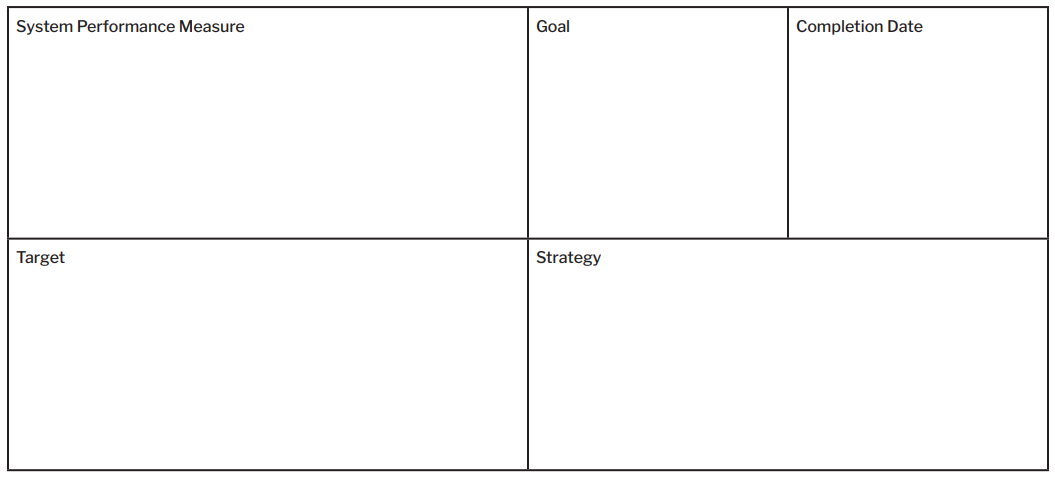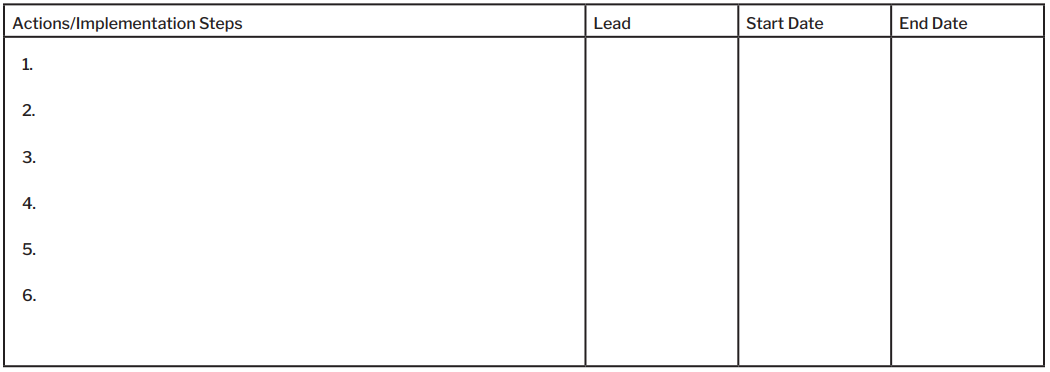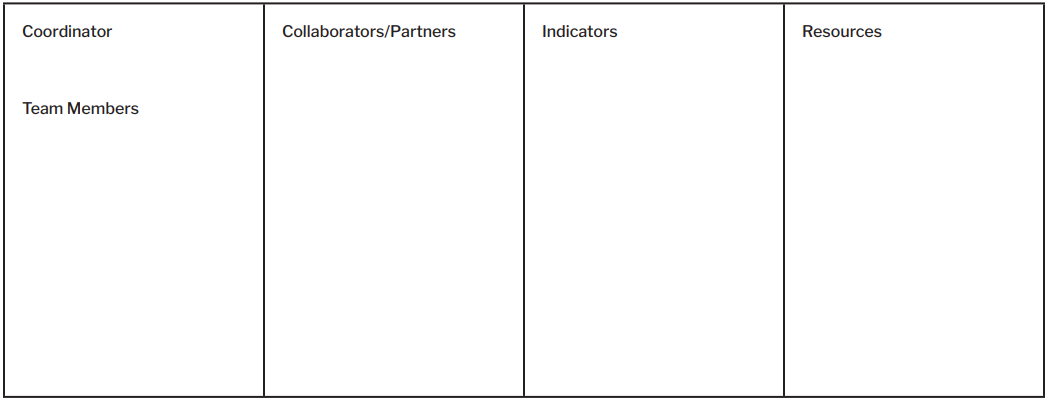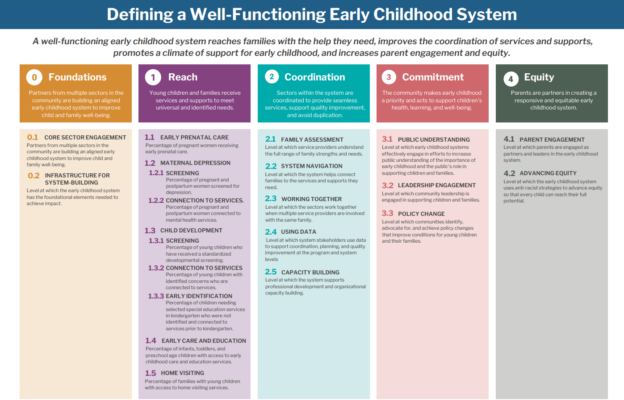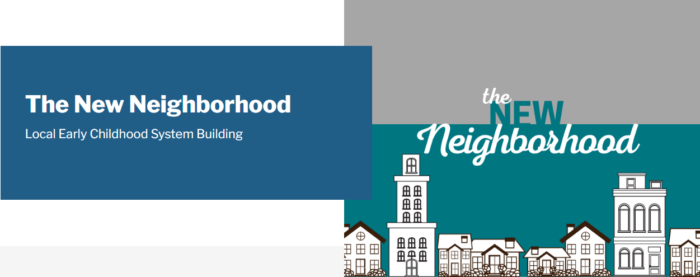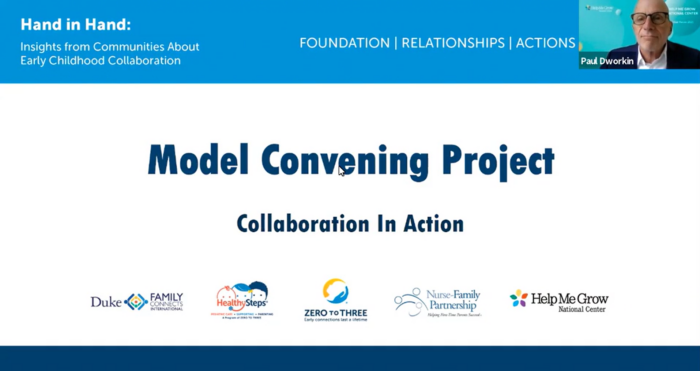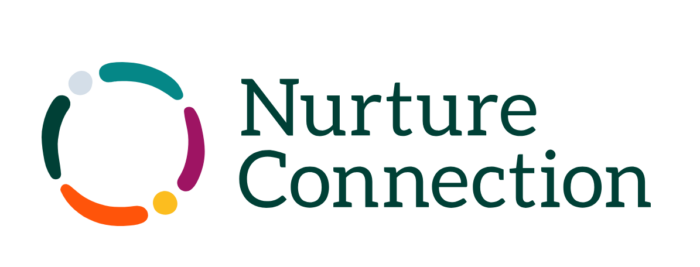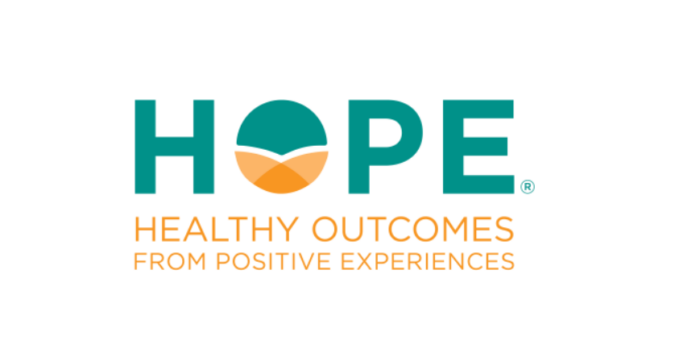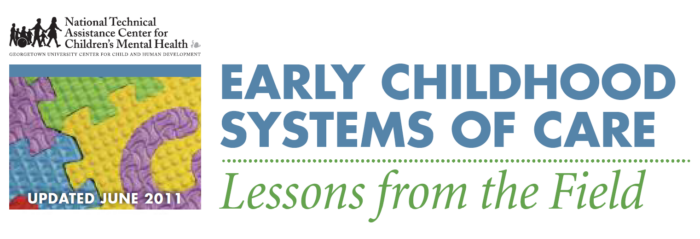Early Childhood System Performance Assessment Toolkit

The purpose of this toolkit is to provide: (1) a framework that identifies the key contributions of a well-functioning early childhood system; (2) a set of performance measures to assess those key contributions, either directly or by proxy; (3) new tools, when needed and possible, that enable system stakeholders to measure system performance in areas that have historically not had tools for measurement; (4) guidance for early childhood system stakeholders on how they can implement the performance measures; and (5) an ongoing research agenda to continue to improve existing system performance measures or tools or to develop tools, where lacking. The toolkit also offers a sample action planning template to help communities turn their results into actions that will support quality improvement.
The toolkit offers a set of performance measures that can be used to assess a community’s progress building an early childhood system and how effectively it is achieving the key contributions of an early childhood system. The measures for each area were selected based on four core criteria: (1) they are relevant to all early childhood systems; (2) they measure system functioning rather than child or family outcomes; (3) taken together, each set of measures captures the major elements of the corresponding contribution; and (4) it is possible to generate data, without excessive cost or time burdens, that would enable communities to implement the measure.
Defining System Performance Measures
- Foundations: Partners from multiple sectors in the community are building an aligned early childhood system to improve child and family well-being.
- Reach: Young children and families receive services and supports to meet universal and identified needs.
- Coordination: Sectors within the system are coordinated to provide seamless services, support quality improvement, and avoid duplication.
- Commitment: The community makes early childhood a priority and acts to support children’s health, learning, and well-being.
- Equity: Parents are partners in creating a responsive and equitable early childhood system.
Sections of the Action Planning Worksheet
Communities may use the action planning template to help progress from assessment to action. The template is designed to apply to a single goal or target; if stakeholders have several, complete one action plan for each identified goal or target.
